 If both terms of a fraction be multiplied by the same number, the value of the fraction will remain unchanged. If both terms of a fraction be multiplied by the same number, the value of the fraction will remain unchanged.  Higher Book - Page 71by William Seneca Sutton - 1896Full view Higher Book - Page 71by William Seneca Sutton - 1896Full view - About this book
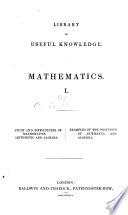 | Mathematics - 1836 - 352 pages
...result. The most important property of a fraction is, that if both its numerator and denominator are multiplied by the same number, the value of the fraction is not altered ; that is, $ is the same as |.|-, or each part is the same when we divide 12 inches into 20... | |
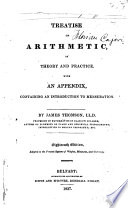 | James Thomson (LL.D.) - Arithmetic - 1837 - 296 pages
...which belong to all fractions : 1. If the terms of any fraction be both multiftlied, or both divided by the same number, the value of the fraction is not changed. 2. A fraction is multiplied by any number either by multiplying its numerator, or dividing Us denominator,... | |
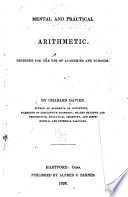 | Charles Davies - Arithmetic - 1838 - 292 pages
...just equal to the decrease from multiplying the denominator ; hence we have, PROPOSITION V. If the numerator and denominator of a fraction be multiplied by the same number, the value of the fraction will remain unchanged. Q. If the numerator of a fraction be multiplied by a number, how many times... | |
 | Thomas Sherwin - Algebra - 1841 - 314 pages
...their greatest common divisor. SECTION XIX. REDUCTION OF FRACTIONS TO THEIR LOWEST TERMS. Art. 62. If both numerator and denominator of a fraction be multiplied by the same quantity, the value of the fraction will not be changed ; for, multiplying the numerator multiplies... | |
 | James Wood - Algebra - 1841 - 492 pages
...to - of £3, which is also 15 shillings. 12. If the numerator and denominator of a fraction be both multiplied by the same number, the value of the fraction is not altered. For, if the numerator be multiplied by any number, the fraction is multiplied by that number... | |
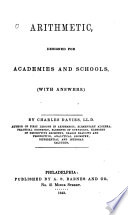 | Charles DAVIES (LL.D.) - Arithmetic - 1843 - 348 pages
...be just equal to the decrease from multiplying the denominator; hence we have, PROPOSITION V. If the numerator and denominator of a fraction be multiplied by the same number, the value of the fraction will remain unchanged. Q. If the numerator of a fraction be multiplied by a number, how many limes... | |
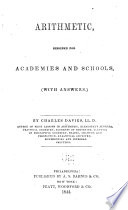 | Charles Davies - Arithmetic - 1844 - 356 pages
...be just equal to the decrease from multiplying the denominator; hence we have, PROPOSITION V. If the numerator and denominator of a fraction be multiplied by the same number, the value of the fraction will remain unchanged. Q. If the numerator of a fraction be multiplied by a number, how many times... | |
 | Thomas Tate (mathematical master.) - 1844 - 184 pages
...are To 6 -£$ are twice -fg, or -fg -fa are 3 times -^5-, or J &c. This exercise proves that if the numerator and denominator of a fraction be multiplied by the same number, the fraction is not altered in value. It will also be seen that as by multiplying the denominator of a... | |
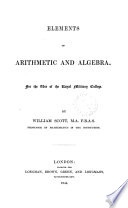 | William Scott - Algebra - 1844 - 568 pages
...It has been proved (Art. 25) that if the terms of any fraction are both multiplied or both divided by the same number, the value of the fraction is not changed ; and this principle has been applied to the reduction of fractions to the lowest terms (Art. 26).... | |
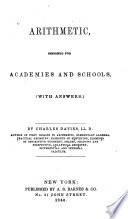 | Charles Davies - Arithmetic - 1846 - 362 pages
...just equal to the decrease from multiplying the denominator; hence we have, PROPOSITION V. If tlie numerator and denominator of a fraction be multiplied by the same number, the value of the fraction will remain unchanged. Q. If the numerator of a fraction be multiplied by a number, how many times... | |
| |